第288章 THE SIXTH ENNEAD(80)
This makes it all the more evident that the unembodied is the free; to this our self-disposal is to be referred; herein lies our will which remains free and self-disposing in spite of any orders which it may necessarily utter to meet the external.All then that issues from will and is the effect of will is our free action; and in the highest degree all that lies outside of the corporeal is purely within the scope of will, all that will adopts and brings, unimpeded, into existence.
The contemplating Intellect, the first or highest, has self-disposal to the point that its operation is utterly independent; it turns wholly upon itself; its very action is itself;at rest in its good it is without need, complete, and may be said to live to its will; there the will is intellection: it is called will because it expresses the Intellectual-Principle in the willing-phase and, besides, what we know as will imitates this operation taking place within the Intellectual-Principle.Will strives towards the good which the act of Intellectual-Principle realizes.Thus that principle holds what will seeks, that good whose attainment makes will identical with Intellection.
But if self-disposal is founded thus on the will aiming at the good, how can it possibly be denied to that principle permanently possessing the good, sole object of the aim?
Any one scrupulous about setting self-disposal so high may find some loftier word.
7.Soul becomes free when it moves, through Intellectual-Principle, towards The Good; what it does in that spirit is its free act; Intellectual-Principle is free in its own right.That principle of Good is the sole object of desire and the source of self-disposal to the rest, to soul when it fully attains, to Intellectual-Principle by connate possession.
How then can the sovereign of all that august sequence- the first in place, that to which all else strives to mount, all dependent upon it and taking from it their powers even to this power of self-disposal- how can This be brought under the freedom belonging to you and me, a conception applicable only by violence to Intellectual-Principle itself?
It is rash thinking drawn from another order that would imagine a First Principle to be chance- made what it is, controlled by a manner of being imposed from without, void therefore of freedom or self-disposal, acting or refraining under compulsion.Such a statement is untrue to its subject and introduces much difficulty; it utterly annuls the principle of freewill with the very conception of our own voluntary action, so that there is no longer any sense in discussion upon these terms, empty names for the non-existent.Anyone upholding this opinion would be obliged to say not merely that free act exists nowhere but that the very word conveys nothing to him.To admit understanding the word is to be easily brought to confess that the conception of freedom does apply where it is denied.No doubt a concept leaves the reality untouched and unappropriated, for nothing can produce itself, bring itself into being; but thought insists upon distinguishing between what is subject to others and what is independent, bound under no allegiance, lord of its own act.
This state of freedom belongs in the absolute degree to the Eternals in right of that eternity and to other beings in so far as without hindrance they possess or pursue The Good which, standing above them all, must manifestly be the only good they can reasonably seek.
To say that The Good exists by chance must be false; chance belongs to the later, to the multiple; since the First has never come to be, we cannot speak of it either as coming by chance into being or as not master of its being.Absurd also the objection that it acts in accordance with its being if this is to suggest that freedom demands act or other expression against the nature.Neither does its nature as the unique annul its freedom when this is the result of no compulsion but means only that The Good is no other than itself, is self-complete and has no higher.
The objection would imply that where there is most good there is least freedom.If this is absurd, still more absurd to deny freedom to The Good on the ground that it is good and self-concentred, not needing to lean upon anything else but actually being the Term to which all tends, itself moving to none.
Where- since we must use such words- the essential act is identical with the being- and this identity must obtain in The Good since it holds even in Intellectual-Principle- there the act is no more determined by the Being than the Being by the Act.Thus "acting according to its nature" does not apply; the Act, the Life, so to speak, cannot be held to issue from the Being; the Being accompanies the Act in an eternal association: from the two [Being and Act] it forms itself into The Good, self-springing and unspringing.
8.But it is not, in our view, as an attribute that this freedom is present in the First.In the light of free acts, from which we eliminate the contraries, we recognise There self-determination, self-directed and, failing more suitable terms, we apply to it the lesser terms brought over from lesser things and so tell it as best we may: no words could ever be adequate or even applicable to that from which all else- the noble, the august- is derived.For This is principle of all, or, more strictly, unrelated to all and, in this consideration, cannot be made to possess such laters as even freedom and self-disposal, which in fact indicate manifestation upon the extern- unhindered but implying the existence of other beings whose opposition proves ineffective.
We cannot think of the First as moving towards any other; He holds his own manner of being before any other was; even Being we withhold and therefore all relation to beings.